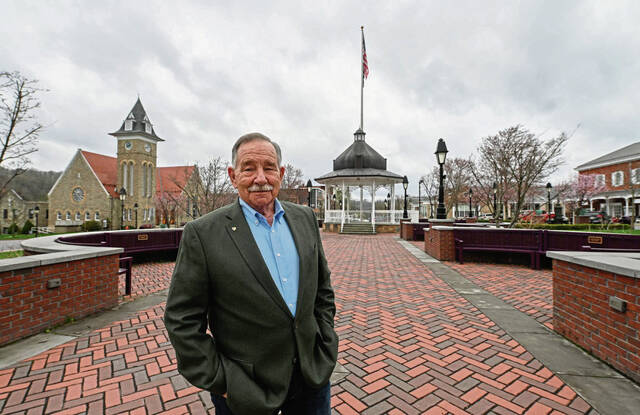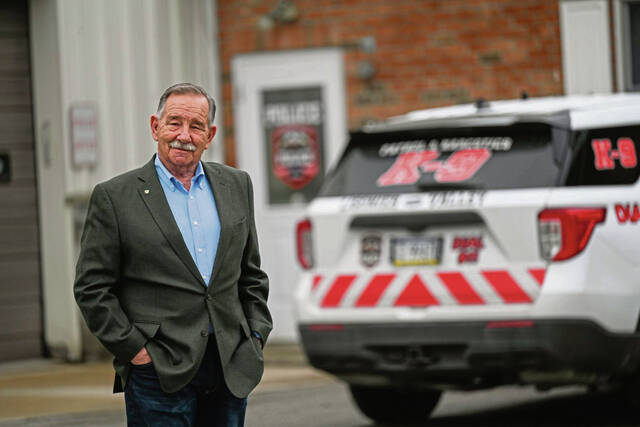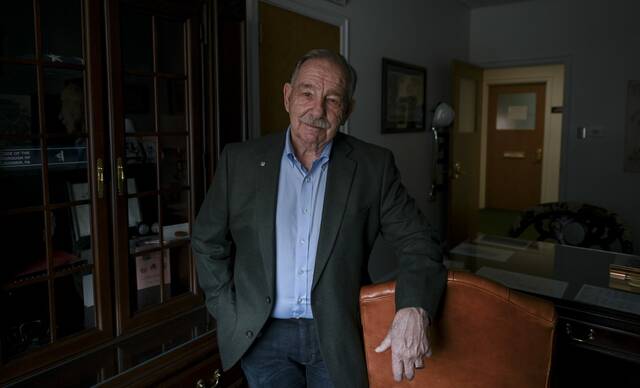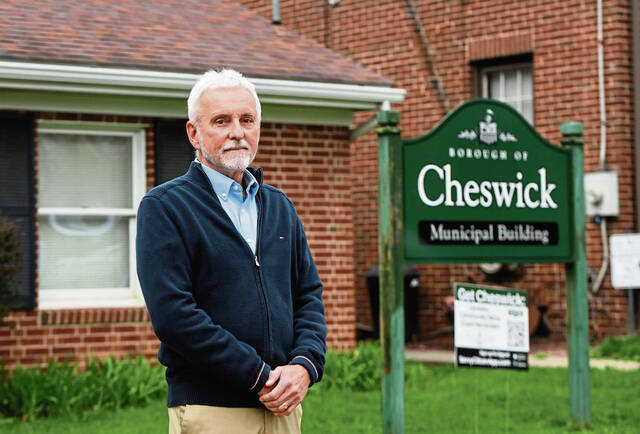Zack Gent’s final council meetings as mayor of Freeport were tense.
The energetic young Republican took office in September 2022 with the aims of supporting local businesses, promoting recreational assets and improving government transparency. He would hold the post during crucial years for the quiet river town as it hired its first manager and navigated a police merger with neighboring Gilpin.
“I wanted to make legitimate change,” Gent said.
Two years in, his political capital was spent. Gent had clashed with borough council over what he perceived as a lack of urgency to hire a professional auditor, and his relationship with council President Rick Fennell, in Gent’s telling, had deteriorated.
“If I was lucky, some of them would look at me,” he said.
When he announced at the borough’s October meeting his plans to resign at the end of the year, council hardly reacted, as though it was an ordinary mayor’s report.
To some extent, this is what Gent signed up for. While the mayor of Pittsburgh is similar to a president, most borough mayors are akin to constitutional monarchs — well-known and perhaps holding some sway, but given few formal powers.
Gent’s influence was further undermined as Freeport hired a manager and joined the Southern Armstrong Regional Police Department, though that didn’t stop him from lending his support to both initiatives.
Pennsylvania’s boroughs, by default, have a system where the power to pass ordinances, make appointments and manage most public services is concentrated in council. Mayors get limited, if any, say on legislation.
This dynamic is different in the state’s cities. In third-class cities — everywhere but Pittsburgh and Philadelphia — mayors get a vote on council. In Pittsburgh, the mayor doesn’t sit on council, but has authority over the city’s administrative apparatus and formidable veto power.
In most boroughs, though, a mayor’s role lies almost exclusively in overseeing law enforcement, especially when it comes to hiring, firing and delegating responsibilities.
The power of the purse in police and all other matters lies with council. So it’s not up to the mayor whether the department, for example, buys a new cruiser.
In the event of regionalization, that oversight role gets divided among a commission of participating municipalities.
For mayors who find themselves without a council vote and splitting decision-making atop a joint police force, the office can be freeing or frustrating, depending on the day.
It’s not lost on Gent that fewer responsibilities meant more time to visit small businesses, advertise community events and build relationships with the Freeport Area School District.
But it was ultimately council’s right to ignore him, he said, that drove him to step away.
Ligonier Borough Mayor Butch Bellas contended the amount of time he devotes to police matters has actually increased since his community joined with Ligonier Township in 2019 to form the Ligonier Valley Police Department.
There’s been friction from the start as the municipalities decided on a funding structure. In the end, the township took on 70% of the cost burden, and the borough 30%.
“There have been sleepless nights worrying about stuff, just things that are going on with the department,” Bellas said.
The latest dispute involved the township suing the commission over what a judge ruled in January was an improper appointment.
Cheswick and Springdale also started a merged force, the Allegheny Valley Regional Police Department, in 2019.
“It’s an adjustment” having less control over personnel and enforcement, acknowledged longtime Cheswick Mayor Daniel Carroll.
His focus since has turned toward serving as a conduit for resident complaints. Lucky for him, a once-sour relationship with council has sweetened in recent years. When he presents the feedback he has collected, he feels the group listens.
“You have to learn, first of all, to approach council,” he said. “I have a lot of sway with council, especially (members) that have been in a while.”
Bellas described this part of this job like being a traffic cop.
“If somebody comes to me with a problem, I’ll say, ‘well, OK, let me look into it,’ ” he said. “I’ll talk to somebody on a committee or council, and I’ll tell them to go see this person.”
A term as mayor, anyone?
Finding Gent’s replacement has been challenging. Freeport Council had only received two applications as of early March. It selected Matt Crytzer, who has declined to comment on borough matters until he’s sworn in by an Armstrong County judge.
“It’s hard to find someone who has to invest so much time in the community who has little say in its direction,” said Freeport Borough Manager Zach Filous.
Brackenridge is having a similar struggle. Mayor Lindsay Fraser’s first term is done at the end of this year, and she’s not sure if she’s up for round two. As an independent, she has until July to file for reelection.
So far, no one has shown interest in taking her place.
Tarentum absorbed Brackenridge’s police force in 2023, leaving Fraser without her core duty. And while she recently told TribLive she feels the change has let her “elevate the role of mayor and connect with the community differently,” her signature initiative to bolster the borough’s online presence has stalled.
Bellas, 80, will let his term expire at the end of 2025 after more than two decades as Ligonier Borough mayor.
“I’ve served my time,” he said. “I’m just paying my dues for living in town.”
The post has come with perks.
State law permits mayors to officiate weddings as a judge or clergy member would. Bellas has always relished that part of the office, at one point marrying about 40 couples in a single year.
He also fondly recalls being invited to a shoot for “The War That Made America,” a PBS documentary about the French & Indian War produced by WQED in the mid-2000s.
And perhaps most important, “I met a lot of nice people,” he said. “More good ones than bad ones, thank God.”

























